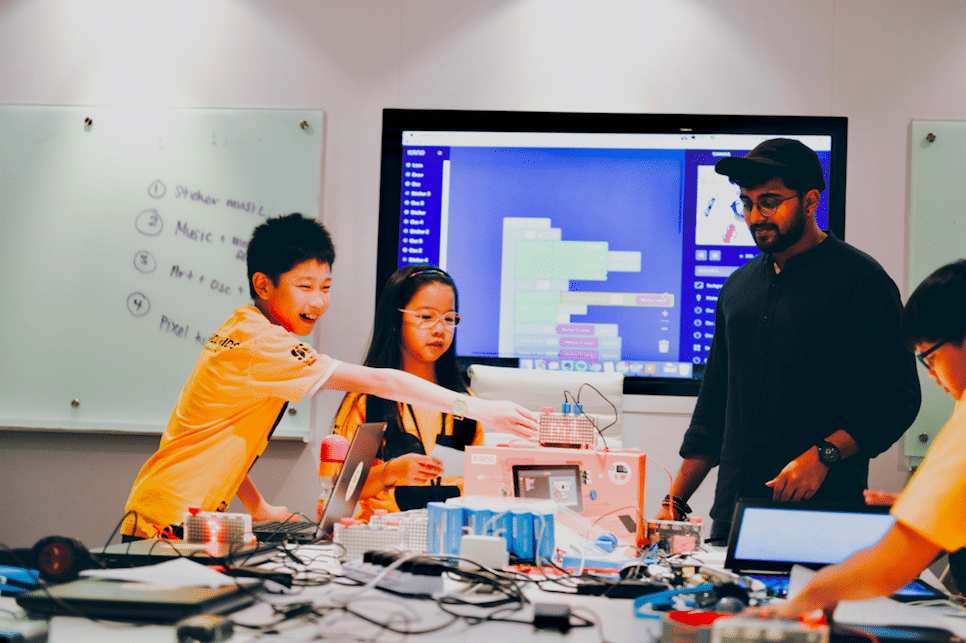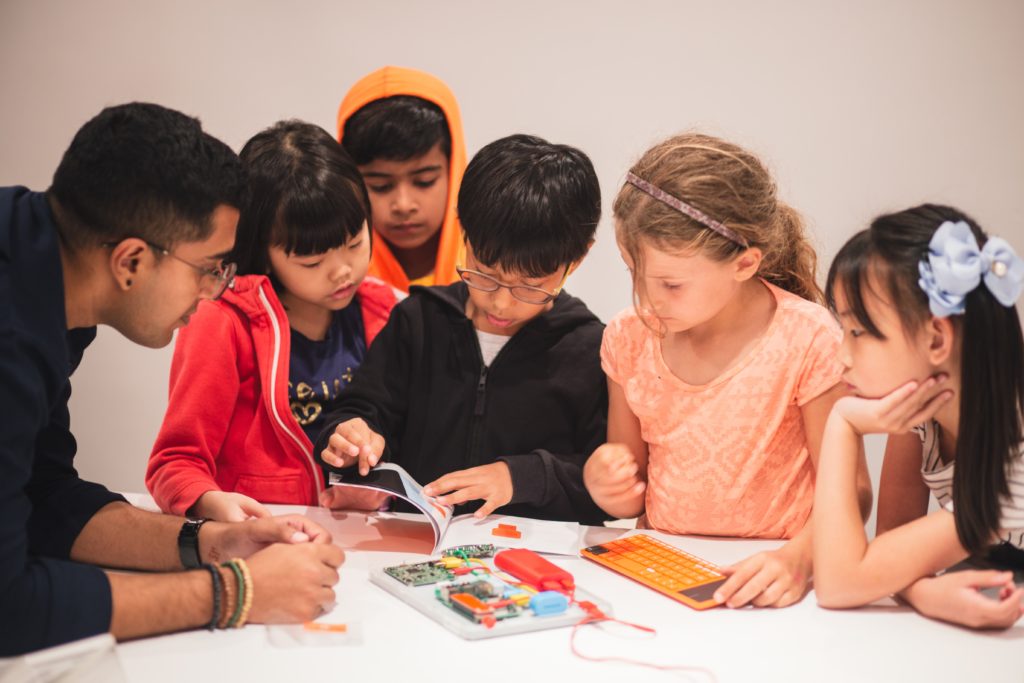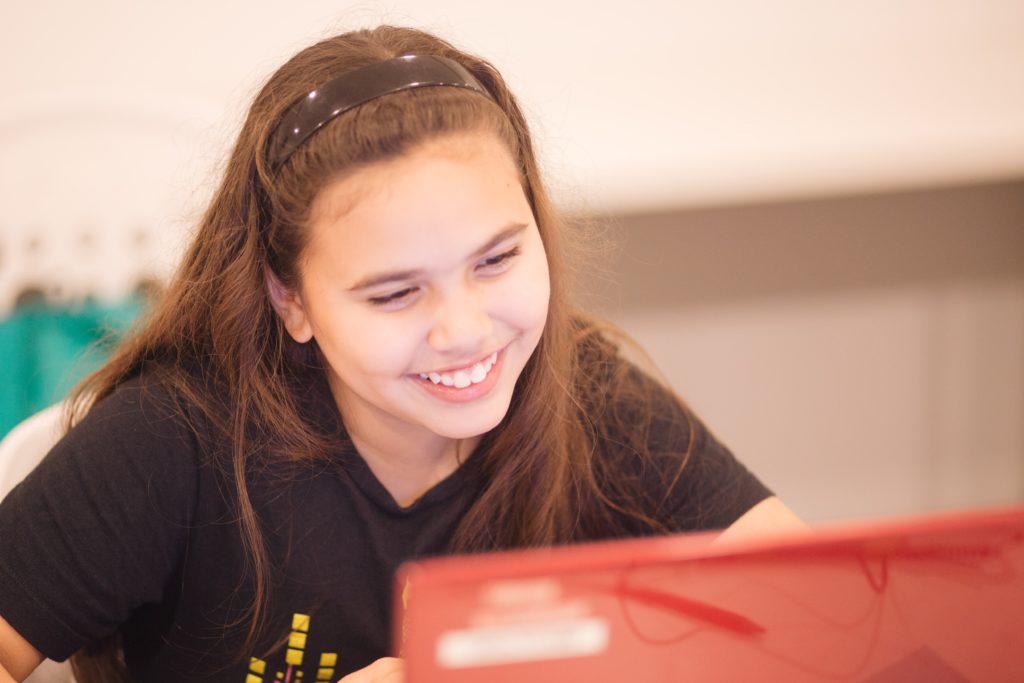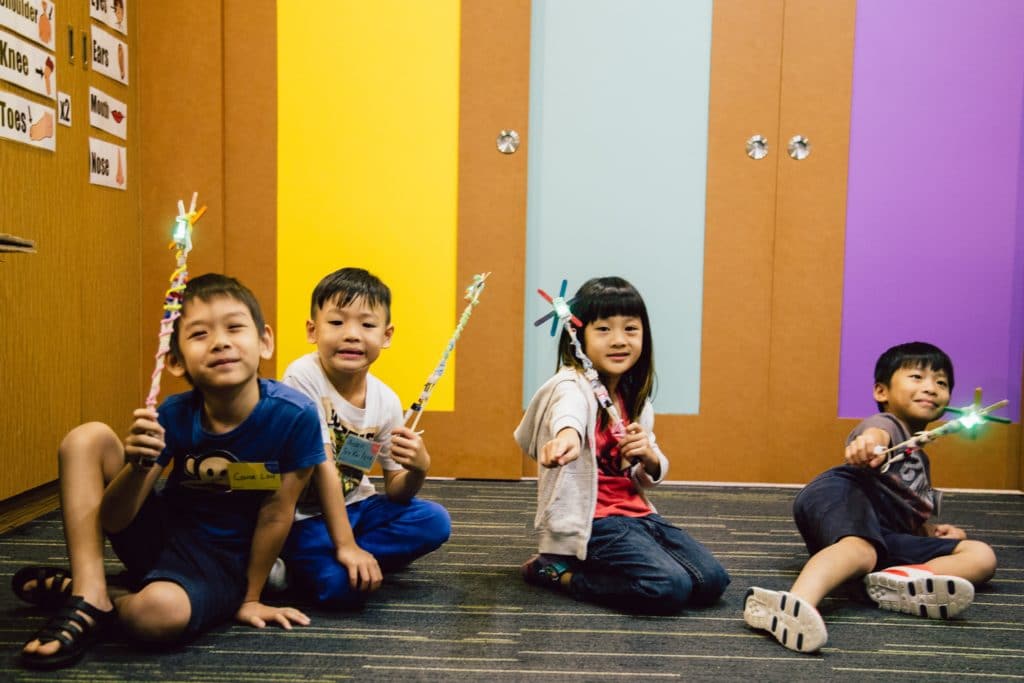The Push for Digital Literacy: Pursue Creativity, not Competition
August 29, 2019

A little earlier this year, coding enrichment classes were made compulsory for all upper primary students in Singapore – you can read more about the news here.
Our team is psyched and hopeful about what this means for Singapore. Firstly, this policy will bring digital literacy to kids in Singapore at scale – and that’s a good thing. Done well, this will help kids lean into the future and equip them with the knowledge to make sound, informed decisions and navigate the world they’re growing up in. Secondly, this offers kids an additional medium to express their creativity, while hopefully getting them curious about technology, boosting their creative confidence and providing them another outlet for self-expression.
At the same time, it’s important to place this development within a larger context and to recognise what our responsibility is, as parents, educators and a general community, so as to ensure this ultimately benefits all kids in the long run without evolving into yet another weapon for classroom competition. Here are a few thoughts on how we help ensure this policy ultimately has a positive impact on kids.
1) Think critically about digital literacy education
This might sound strange, but at Saturday Kids, we’ve never believed in promoting technology for technology’s sake. Instead we see it as a means for getting kids to stay curious, inventive, and resourceful. Because we believe that’s the secret sauce for kids to thrive in an unpredictable world, and work towards their own definitions of success, whatever that might be.
How kids learn matters as much – if not more – than what they’re supposed to learn. Coding may be the flavour of the month and a very useful skill at this point of time, but as the saying goes, change is the only constant. (That’s why aside from coding classes, we also run outdoor camps like Saturday Kids Unplugged.) Not every kid needs or should grow up to be an engineer, but if they’re curious, creative and self-directed, that will go a long way towards enabling them to solve big problems and flourishing in their own paths. We stand for inspiring curiosity, regardless of the subject matter.
2) Value what makes us human
Technology doesn’t operate in a vacuum. The more technology-driven and automated our world becomes, the more important “human skills” and the humanities become. The ability to analyse, evaluate and apply technology within different contexts is critical. That’s why the study of the humanities and social sciences is so important, and why traits like curiosity, empathy, and problem-solving are the ones we should really look to nurture. Amidst the hype of tech, let’s not overlook the fundamental skills and qualities that are key to ensuring tech is purposed for the greater good.
3) Keep code creative, keep learning fun
As we mentioned earlier, kids can and should learn so much more than just technical skills when they learn to code! Code can be a powerful tool for kids to build creative confidence and practise creative expression – qualities that will last a lifetime and come in useful whether a kid grows up to be an engineer, author, banker, or musician. Let’s keep code creative and the learning process fun. Because when kids get a taste of how fun learning can be, half the battle is won for getting kids to learn whatever they need and want to learn.
. . .
We’ve said our piece, but more than anything, we’re curious to know your thoughts! Does this development concern or excite you? Leave a comment below and let’s have a conversation.
It’s not too late to join in our other Saturday Kids Conversations:
Placing Kids at the Centre of Education in a VUCA world
The Evolution of Streaming and What we can Learn from the School of the Animals
At Saturday Kids, we’re on a mission to inspire kids to be curious and self-motivated learners.
Find out what we’ve got planned for kids this school holiday right here!


